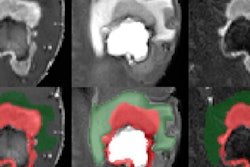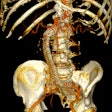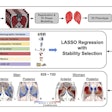Dear Imaging Informatics Insider,
The rapid development of artificial intelligence (AI) in radiology has led to a growing awareness of the need to ensure that algorithms are developed and used in an ethical manner. In a presentation at the recent European Society of Radiology AI conference in Barcelona, Spain, Dr. Adrian Brady of Mercy University Hospital in Cork, Ireland, explored the key ethical issues surrounding radiology AI.
We're covering his talk in a two-part series. Part 1 delves into ethical issues such as data ownership, privacy, and bias, while the forthcoming part 2 will highlight additional ethical concerns related to transparency, interpretability, conflicts of interest, and workforce disruption.
In other news, an Israeli team has developed AI-based malware to draw attention to the security vulnerabilities in medical imaging equipment and the networks that transmit those images. Using a generative adversarial network, the malware can add fake lung nodules to a CT scan or eliminate existing tumors from scans automatically.
An AI algorithm can also provide automated analysis of gliomas on MRI examinations, yielding more accurate assessments of how well these brain tumors are responding to treatment than current manual methods, according to German researchers.
AI will likely bring much change to radiology in the coming years. In the new era of AI-enabled radiology, radiologists will need to communicate and interact more with patients in order to present themselves as important players, according to Dr. Andreas Gutzeit.
Without a significant change in attitude toward radiology software adoption, European radiology may find itself falling behind as the shift to interdisciplinary care, centralized procurement, and AI intensifies, according to Stephen Holloway of Signify Research. Also, Simon Harris of Signify Research reports that quantitative imaging will drive the uptake of AI in MRI.
The combination of an imaging analytics platform and lean management concepts yielded substantial improvements in MRI department operational efficiency for a Poland imaging center without affecting the quality of care, according to a presentation at ECR 2019.
Sharing patient data on Facebook or WhatsApp involves a breach of European data protection regulations and can have serious consequences. In a talk at ECR 2019, Dr. Erik Ranschaert, PhD, discussed secure alternatives for image sharing.
In addition, the U.K. Royal College of Radiologists has updated its guidance for the calibration and required resolution for imaging display devices. The new version also includes mobile devices for the first time.
If you have any tips or suggestions for topics you'd like to see covered in the Imaging Informatics Community, please feel free to drop me a line.



















